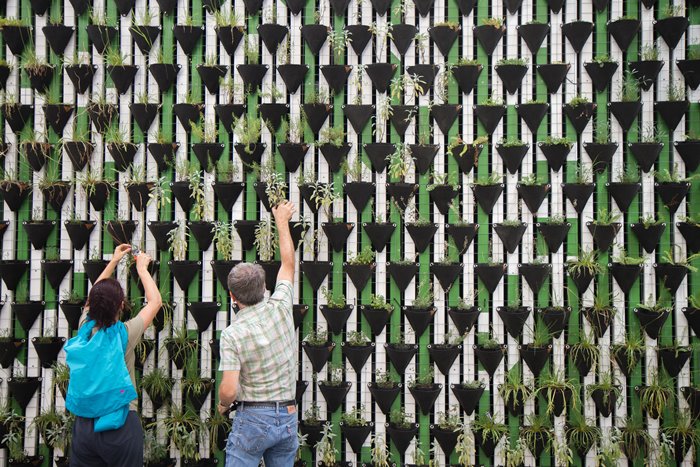How have we told the Brazilian corporate sustainability

By Natália de Campos Tamura
Talking about sustainability is trending in the business world. If not in attitudes, in the way we express ourselves. Companies have been keen to say that sustainability is their mission, their raison d’être, that they care about, and their purpose is to comply with the famous Triple Bottom Line (the intersected social, environmental and economic perspective) proposed by John Elkington in the 1990s. However, while the speeches have improved, the question is: Do companies know what they want when it comes to sustainability?
In fact, the reflections are consequences of a scenario that shows how little we understand about the subject. A survey from the State University of Campinas (SP), conducted in 2019, evaluated the perception that consumers have about sustainability and concluded that many people confuse concepts according to their level of information and education. In 2018, the Rede Conhecimento Social (Social Knowledge Network), in partnership with IBOPE Intelligence and Conhecimento Social, surveyed what Brazilians understood by ODS (Sustainable Development Goals). 49% of respondents did not know the topic, 38% only heard about the SDGs, while 10% said they had some knowledge of what it would be, despite not knowing how to define it.
If for Brazilians, the subject is unfamiliar in their daily lives, business sustainability is possibly related to the recycling and care of needy children. But how do we explain this? Much of our misguided imagery about how we understand sustainability comes from our constitution as a Brazilian society. We are not sustainable because we do not act as actors in a historical process. Add to that our welcoming nature that has got us used to it. Few are our natural limits. We waste it because we don’t have months of the year where everything is frozen, as in many countries, limiting the abundance of food. It’s always fresh. We learned little to save. Perhaps that is why we have neglected our forests, seas, animals, giving way to the considerably progressing natural and social calamity.
Notably, to talk about corporate sustainability is to talk about a new mental model. It is not just in a department that every company must have to better sell its image and find that it can heroically change the world. Diversity means nothing if we are not more specific if we do not bring blacks, women, LGBTs, the elderly and the disabled into the conversation. Gathering donations in the winter or Christmas bags for vulnerable children does not solve the invisibility problem we have given to their education and social repertoire for the rest of the year, but only in their lifetime. It is no use narrating the sustainable prowess of our productions if we still call someone the one who runs a machine in a manufacturing facility as a “factory floor”. These are not just words, but legitimate recognition that everyone who participates in an organization collaborates with it and its purpose, regardless of the space in their organization chart.
In a survey conducted by Aberje in 2019 on sustainability, we noticed the maturation of the theme in the business environment, which showed how many corporate purposes, social responsibility, political activism, inclusion are gaining space and relevance in Brazilian companies. The good news is that, according to the survey, nine out of ten companies surveyed have a structured area for sustainability management, and in 58% of them, the sustainability strategy is closely monitored by the company’s presidency, boards, and management.
If speeches give meaning, narratives build meaning. From this perspective, the discourse on corporate sustainability in Brazil, while showing maturity and strength over time, needs narratives that make sense in people’s lives.
Perhaps it is time to overflow our beautiful corporate discourses with authentic and consistent narratives about how the people who make up an organization interpret sustainability from their own life experiences.
Natália de Campos Tamura is Ph.D. student in Communication Sciences from USP, Master in Education, Art and History of Culture, Specialist in Communication Management and Bachelor in Public Relations. She teaches at the Aberje MBA, in addition to teaching the Public Relations course at Cásper Líbero College and Anhembi Morumbi University. She also represents Aberje on the UN Global Compact Communication and Engagement Commission.
Destaques
- Retrospectiva Aberje 2024: mundo em crise e transição
- Tema do Ano “Comunicação para a Transição” é renovado para 2025
- Valor Setorial Comunicação Corporativa 2024 analisa importância das conexões e da transparência na Comunicação
- Aberje participa de jantar comemorativo dos 25 anos da Fundação Gol de Letra
- Web Summit Lisboa 2024: Inovação e ética em um futuro moldado pela IA
ARTIGOS E COLUNAS
Patricia Marins Meta e o fim da checagem de fatos: por que a Dieta da Comunicação é essencial para a gestão da reputação em 2025Thais Andreoli Gestão de crises: transparência ou discrição?































